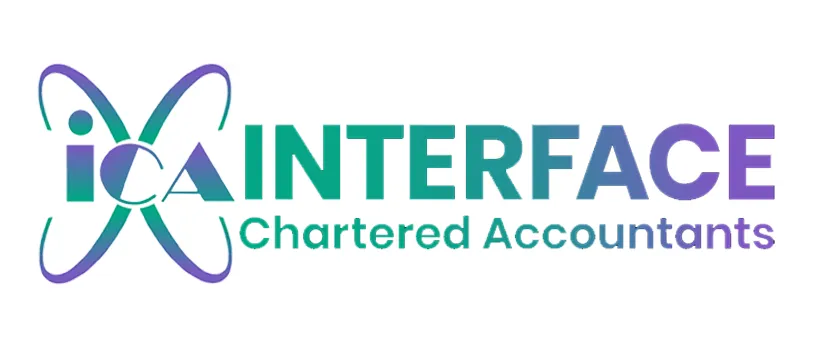Tax Deduction
A tax deduction is anything you may deduct from your taxable income to reduce the amount of tax you owe. Tax deductions are costs that you can deduct from your taxable income to lower your tax liability. With the passing of the Tax Cuts and Jobs Act of 2017, several of the most common tax deductions available to individuals were abolished or restricted.
Not so for small business owners, whose taxable income may only be calculated by deducting their operating expenses from their gross earnings. Tracking your business expenditures to deduct them from your income is still crucial if you operate a small business, are self-employed, or get income through a limited liability corporation (LLC).
A limited liability corporation (LLC) is a corporate entity that shields people from financial losses and debt responsibilities incurred by the firm. In the case of a legal lawsuit or commercial failure, the corporation assumes liability rather than its constituent partners or shareholders.
Lowering your overall tax obligation should be a major objective for any business owner. One method to accomplish this is to verify that you are taking advantage of all applicable deductions. Accountants have seen company owners leave a lot of money on the table over the years. Here are nine frequently ignored deductions.
-
Deduction for Home Office
Given the events of the previous two years, this is more pertinent than ever as more firms permanently migrate to working from home. You may be eligible to deduct a portion of your mortgage or rent, utilities, insurance, and other expenditures if you utilise part of your house for business operations.
There are two alternatives:
- Simplified: The simple option charges $5 per square foot, up to a limit of 300 square feet, with a $1,500 maximum deduction. This is the greatest solution for company owners who don’t keep track of every single cost but nonetheless operate from home and want to take advantage of the benefit.
- Consistent: The normal, or regular, option allows you to itemize all of your costs. The maximum deduction allowed here is your company’s gross income. However, there is a catch: This alternative necessitates thorough receipts and records of your business-related spending. So, if your home office costs exceed $1,500 and you’re the sort of person who keeps things orderly, this may be the ideal deduction for you.
-
Startup costs
If you’re just starting out, you can deduct up to $5,000 in startup costs before you establish your company. While there are a few conditions to consider, the following expenses are often deemed tax-deductible:
- Training costs.
- Travel expenses incurred in locating personnel, suppliers, and customers.
- Market investigation.
- Advertising costs.
- Contractors’ or consultants’ pay.
- Commercial insurance
Depending on your state, most firms must carry certain types of business insurance, such as worker’s compensation insurance, general liability insurance, and professional liability insurance. Each of these insurance forms is deemed required for the running of a business and can be deducted from your taxable revenue.
-
Vehicle and Mileage Expenses

If you use your personal vehicle for business purposes, you may be able to deduct mileage and a portion of your gas, oil, repairs and other maintenance costs. The Internal Revenue Service (The IRS’s objective is to serve America’s taxpayers with high-quality service by assisting them in understanding and meeting their tax obligations, as well as to enforce the law with integrity and justice to everyone) releases standard mileage rates on a yearly basis.
However, if you choose to deduct your vehicle expenses using the actual expense method, you can also deduct a portion of your vehicle’s depreciation.
-
Employee wages
All your workers’ wages, including bonuses and commissions, are entirely deductible as long as the payments are judged as usual, fair, and for services done. This deduction is also available to independent co

ntractors; however, they must be properly categorized to avoid fines.
-
Food and entertainment
You can deduct 50% of the expense of business-related meals and entertainment, such as client dinners, business lunches, and tickets to sporting events or theatre performances.
There are, however, a few limitations.
- First, the meal or entertainment must be “directly tied to or associated with” your active business activities.
- Second, you may only deduct the cost of meals and entertainment if you have receipts or other supporting proof.
-
Prepare for Large Expenditures
Your tax bracket might vary greatly depending on your taxable income. If your business is a limited liability corporation (LLC) which refers to a corporate entity that shields people from financial losses and debt responsibilities incurred by the firm, you must pay taxes on your portion of the profits.
You review your taxable income a few weeks before the end of the fiscal year and discover that it is around $100,000 so far, at the 24% tax rate for 2023. If you spend $20,000 on new equipment, your taxable income will be reduced, and your tax bracket will likely be reduced to 22%.
You may optimize your deductions and save money every year if you plan ahead of time for high-end items.
-
Deduct Your Medical Premiums
If you have an individual health plan (rather than a group plan) and pay your healthcare premiums out of pocket without any tax breaks or subsidies, you may be able to claim those premiums as an income tax deduction if you are a sole proprietor, a partner in a partnership or an LLC, or a shareholder in a S corporation who owns more than 2% of the company stock.
-
Contributions to a Retirement Plan
Retirement and tax preparation are inextricably linked. The tax advantages you will receive are determined on the type of retirement plan you have. Contributions to a retirement plan provide an opportunity to reap tax benefits now and in the future.
Businesses can set up low-cost programs with increased contributions for owners. Small firms can also take advantage of other retirement account choices. Contributing to a retirement plan will not only provide you with a tax benefit, but it will also improve your retirement savings.
-
Marketing
Small enterprises must sell their goods and services. Fortunately, marketing, advertising, and other promotional efforts that bring in new consumers and maintain existing ones are tax deductible. Among the costs that qualify are:
- Website Development for Advertising and Public Relations
- Email Promotion
- Print materials such as business cards, brochures, and so on.
- Obtaining the Services of a Marketing Consultant
In order to claim tax deductions or credits what is required?
Find out what income you need to include in your tax credits claim or renewal. For details contact us through our website call us at our number.
Conclusion
When paying their income taxes, small firms, freelancers, and entrepreneurs can deduct a variety of business costs, including: Mileage and costs for a car. Office expenditures, such as rent and utilities. Office supplies, such as computers and software. Premiums for health insurance etc.
Lowering your overall tax liability should be a top priority for any business owner. One way to do this is to ensure that you are taking advantage of all eligible deductions. Over the years, accountants have seen business owners leave a lot of money on the table. Here are six commonly overlooked deductions.
 Skip to content
Skip to content

